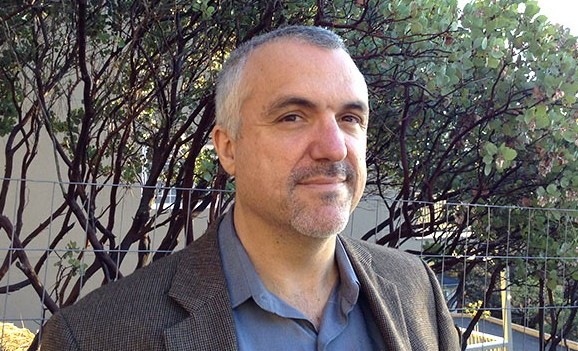
Emanuel Sferios, the director of MDMA: The Movie, has a history of providing harm reduction services to club-goers. | Image Source: MDMA The Movie
Emanuel Sferios is the founder of DanceSafe and director of the upcoming feature length documentary MDMA: The Movie. In the first part of our two-part interview with him, we talked to Emanuel about his inspiration behind DanseSafe, why he foresees major changes in drug policy coming up in the near future, and how prohibition creates a dangerous situation for people who choose to use MDMA. In this second part, we speak about the film and the vital importance of reducing stigmas around drug use.
We are very excited about your upcoming documentary MDMA: The Movie. Are you hoping that by demystifying MDMA to a worldwide audience, we might see stigmas dissolve and a surge of support for harm reduction in drug policy?
Reducing stigma is one of the primary goals of the film, and not just around MDMA use but the use of all drugs. Stigma is a primary driver of drug abuse. The judgment that drug war culture puts on people who choose to use drugs actually manifests the very misuse and abuse it claims to be trying to prevent. The vast majority of drug use is non-problematic, and this is true even for drugs like heroin and meth. There will always be people who develop problems with drugs, and we need to deal with that from a health standpoint. Locking people up, however, just makes the problem worse, and so does forcing people into treatment programs. While some people have real addiction issues and need treatment, most drug users don’t benefit from treatment, in no small part because their drug use is non-problematic. Stigma and societal judgment, however, reduces self esteem and often pushes the person into an unhealthy relationship with their drug of choice. It’s a self-manifesting, self-justifying system, and we need to look very critically at it.
Why do you think many people still cling to the concept that a hardline, zero-tolerance approach to drug use is a good thing?
To the drug warriors, increasing stigma is actually considered a good thing. They see it as dissuading people from using drugs. They want drug use to be perceived as abnormal and derelict. This is why we see so many ridiculous, reefer-madness-style ads and public service announcements. One example is the Electric Zoo video they put out last year and made all their attendees watch. They may have thought they were doing a good thing, warning people about the dangers of using Molly, but the real intention was obviously increasing the stigma around using the drug. The young male they showed on the drug was acting in clearly embarrassing ways, and his female companion abandoned him even as he was having a medical emergency. The message of the PSA was clear: if you use Molly, you’re not only going to die, but you’re going to appear ridiculous to your friends. Needless to say, this PSA hasn’t reduced Molly use in New York, but it certainly contributed to a drug war culture of stigma and judgment that can only lead to less responsible Molly use.
Many of the things we’ve covered mention drugs and drug policy in general. What makes MDMA a particularly good candidate for focusing our public discourse on?
I think there is no drug better suited to removing stigma than MDMA. MDMA was a therapeutic medicine long before it became a party drug. It tends to bring the best out of people, increasing compassion and empathy for oneself and others, so it’s hard to make someone feel bad about themselves for using MDMA. No other drug with the exception of marijuana has such a large and enthusiastic community of advocates, and one could argue that MDMA advocates, while a smaller population, are even more enthusiastic. So I can’t think of a better drug to make a film about if one of the goals is to reveal the counter-productive nature of stigma.
That said, there are a number of other goals for the film. Demystifying MDMA and helping to improve the public dialogue around drug policy are a few, but I also want to help bridge the gap in our country today between liberals and conservatives. Since I’ve been alive, there hasn’t been a time when our country has been more polarized. I believe MDMA has an important role to play in the healing of our country, if not the world, and to that end, I want this movie not so much to be a film “all about MDMA” but more a film that produces an MDMA-like experience in the audience. This may be a tall order, but if I can get liberals and conservatives to leave the theater with a little more understanding towards one another as they ponder a drug that produces real empathy, I will have succeeded in more ways than just improving the public conversation around drug policy.
Thanks for speaking with us, Emanuel!
To read about Emanuel Sferios’ pioneering harm reduction organization DanceSafe, check out the first part of our two-part interview with him.










This is such an important movement and I feel like something led me here. This drug change my life and I’m all for supporting this.